Konya Shamsrumi: What is the process of writing a poem like for you? Is it a lot of hard work or easy?
Phodiso Modirwa: I don’t always know what I want to write about. It’s almost as if I have to put pen to paper and trust that what comes out is what I am ready to admit to myself and share with the world. The creative process for me is most times a lonely path of pursuing inspiration, creating, recreating and questioning; a constant shifting. It is days and sometimes months of battling with a thing inside me that wants to come out but does not know-how . A thing I do not know how to sit to set it free. What often jumps up from the page or performance as brilliant art is what many times has evolved through several versions of itself. But writing is also beautiful, it has gifted me a lot of relevance to my own self and confidence in my own voice. Some days, I sit by my desk and poems fall off my mouth but other days I have to backspace-write-tab a whole lot before anything comes out as a poem.

Konya Shamsrumi: Please describe your sense of identity in this or any possible world in imagery or metaphor?
Phodiso Modirwa: Wow! I’m actually grappling with several poems on identity right now to produce a chapbook on the same theme. When I say grapple, I mean I have tried looking at my whole existence through words and am still trying to paint that picture. Still trying to ask myself relevant questions and answer truthfully. So I may not be able to bring this out vividly.
For me, because I’m constantly questioning, my general metaphor for my own identity is tied up in mirrors. How they do not tell us anything new, only what we know (love or hate). How they can break and still be devoted to the worship of echoing back who we are wholly even in their brokenness. Even in closing ourselves in, we’re walking into mirrors and hopefully there we will meet ourselves, and love ourselves back to fearlessness.
Konya Shamsrumi: If any of your poems could literarily save a person’s life, which poem would it be and can you describe the person whose life you think it would have saved?
Phodiso Modirwa: I try to not have in mind the idea that I write to save anyone because I have often neglected myself in doing that. But let’s say the ‘person’ needing saving is me, one of my poems which I think would come in handy would have to be City Blues (you can check it out on YouTube). This because it is one of my honest poems and honesty has always been rope with enough pull to bring me back to myself. The poem centers around my life in Gaborone (Gaborone being a metaphor for any corner that has ever made me feel unsafe, unequipped and alone) which is the city I live in. My struggle with carving out a home for myself in it and my resolve to one day leave it.
This city is a beast and I am crawling inside its mouth Its mountains all mountains for my conquering but I did not come here braced for war So I keep it moving Or it keeps me moving Either way I am moving away from this city soon
– Some of the lines from the poem which really just depicts how powerless and vulnerable being out of place can make someone feel.
The person (being me and anyone who finds the shoe a fit) who this poem would reach out to is someone who has worn her sad like a uniform too long and is tired of the way it hangs useless on her body, how it grips on parts it should let go and lifts with the wind of endless sad experiences. The lines:-
I am tired of holding these stories But if this stage is a fire Let me make of them logs Walk away sure they are ashes What can a girl do with all this sadness?
. . . speak of strength, of confidence in the purifying healing that is telling your story and burning its pulling down hold over you.
Click here
Konya Shamsrumi: What does Africa mean to you, as potential or reality?
Phodiso Modirwa: Africa means home, it means a place of discovery and launching into purpose. This is where we have come to learn who we are and where we have to put in the labor of being proud of our roots, our diverse cultures, our names and stories together with our history.
Africa is a place of greatness that’s taking time to unfold but is unfolding nonetheless, sure in its foundations. Greatness in literature, in agriculture and mining, in music and technology, in every industry.
Konya Shamsrumi: Could you share with us one poem you’ve been most impressed or fascinated by? Tell us why and share favorite lines from it.
Phodiso Modirwa: That poem would have to be Lucille Clifton’s Won’t You Celebrate With Me. It is such an affirmation of resilience and strength and, for me, it acknowledges the everyday battles that make me the woman I am today and how nothing is given for free. It makes me think of how every stage of my life is celebration-worthy because I am still here, even after my anxiety problems that sometimes eats my space and leaves me a small-small room to exist in, I am still here.
. . . come celebrate with me that everyday something has tried to kill me and has failed.
Busamoya Phodiso Modirwa is a Motswana writer and poet. Her writing covers a wide range of subjects gravitating more towards themes around women – their navigation of womanhood and life as well as the injustices they face. She has participated in a number of poetry events in Botswana including the Maun International Arts Festival (MIAF) and the Gaborone International Music and Culture Week (GIMC) to name a few. Phodiso performed at the inauguration ceremony of His Excellency Mokgweetsi E. K. Masisi in 2019. Her work can be found in the Ake Review, Jalada Africa, Writers Space Africa, and Kalahari Review. Her short story, The Healing Balm, was shortlisted for the Botswana Tourism Fiction Award.
- Poets Talk: 5 Questions with Kayeon Onyeka - February 25, 2025
- Poets Talk: 5 Questions with Jakky Bankong-Obi - December 3, 2024
- Poets Talk: 5 Questions with Odu Ode - November 26, 2024






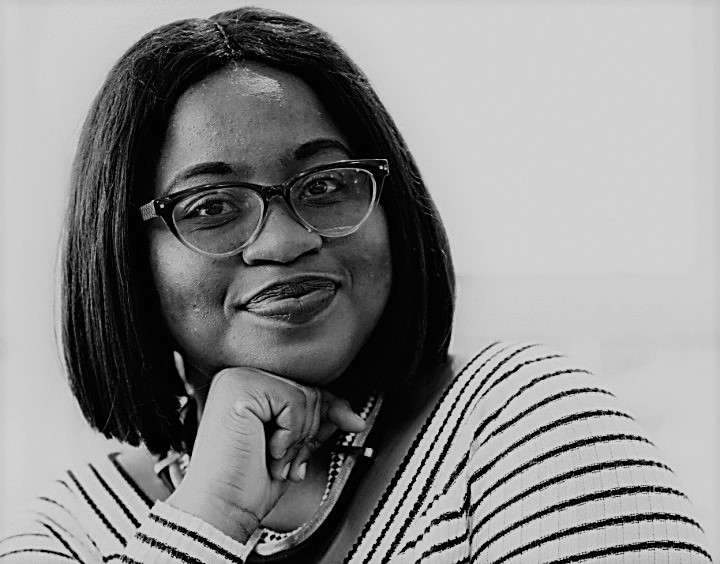
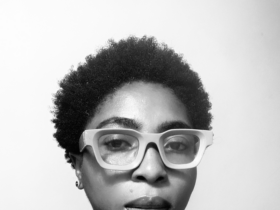
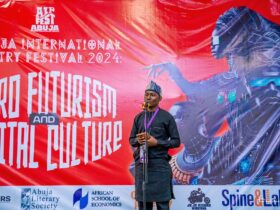
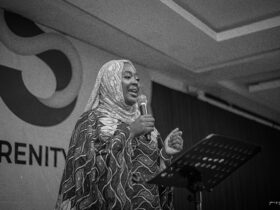
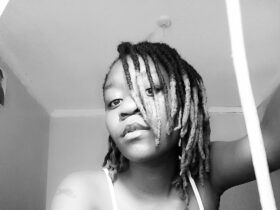
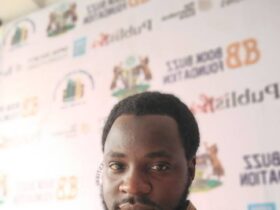

Leave a Reply